PHOTO
Kuala Lumpur, MALAYSIA – The Islamic Financial Services Board (IFSB) has released the 13th edition of its flagship Islamic Financial Services Industry (IFSI) Stability Report. This year’s report reflects a renewed momentum across the industry, with total global assets reaching USD 3.88 trillion in 2024—a 14.9% increase year-on-year. Themed “Navigating Shallow Waters: Addressing Structural Vulnerabilities and Shoring Up Resilience to Global Shocks,”, the report also observed broad-based growth across Islamic banking, ṣukūk, and Islamic insurance, signalling deepening market participation, growing global relevance, and broadening geographical reach.
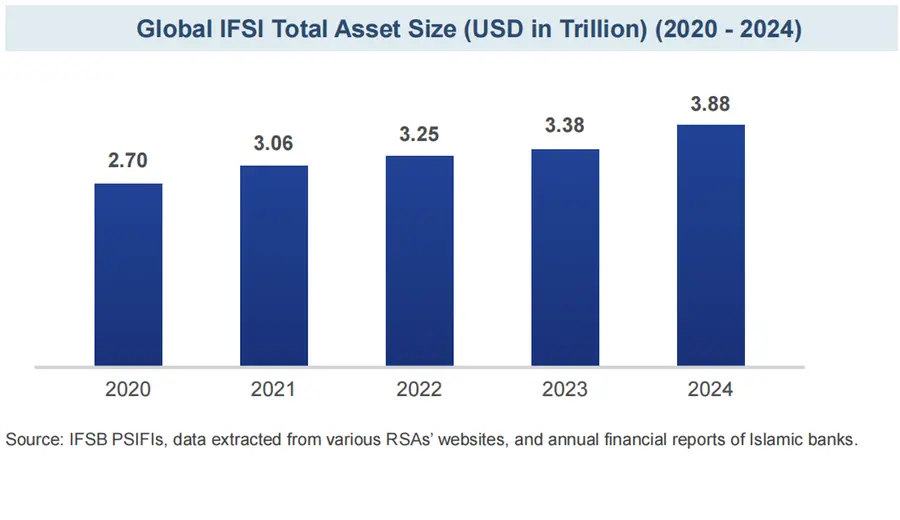

Key takeaways from the report includes:
- Renewed growth momentum of the IFSI: High year-on-year growth across key sectors of the IFSI, registering double-digit growth rates. In 2024, total asset growth for the Islamic banking and Islamic insurance grew by 17.05% and 16.9% respectively, while sukuk issuances increased by 25.6%.
- Emerging markets opening new frontiers: Africa and Central Asia posted the highest growth rates globally, representing important opportunities to deepen local financial markets and expanding the industry’s global footprint.
- Financial soundness indicators remained broadly stable: Capital, leverage, liquidity, and asset quality positions in both the banking and insurance sectors remain broadly sound. This is reflecting the positive impact of strengthened regulatory frameworks, wider adoption of IFSB standards, and growing investor confidence.
- While outlook remains positive, some structural vulnerabilities remain: The report underscores the need to address long-standing structural imbalances, particularly the underdevelopment of capital markets and insurance sectors, which can constrain the industry's scalability and its ability to fully support investment, funding, and liquidity needs across sectors.
- Critical need to address structural limitations in ṣukūk markets: A key conclusion of the report is the need to deepen ṣukūk markets, which plays a vital role in strengthening financial intermediation and supporting macro-financial stability. While 2024 saw a surge in ṣukūk issuance and growing issuer diversity, structural limitations remain, including underdeveloped market infrastructure, complex ṣukūk structures and limited local-currency sovereign issuances, investor concentration, and low trading volumes, among other factors. If unaddressed, these structural limitations may constrain the IFSI’s long-term growth and pose broader financial stability risks, while also affecting other segments of the industry that depend on capital markets to manage their funding, investment portfolios, and liquidity positions.
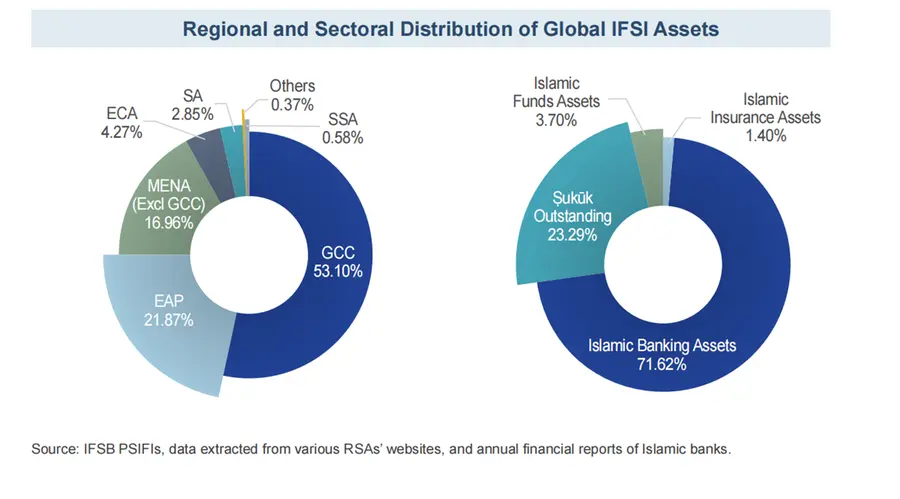

The report further outlines a forward-looking set of policy priorities to address these limitations and unlock the potential growth of Islamic finance. It calls for coordinated action among regulators, policymakers, and industry stakeholders to address these challenges, to ensure the sound development of the Islamic financial services industry.
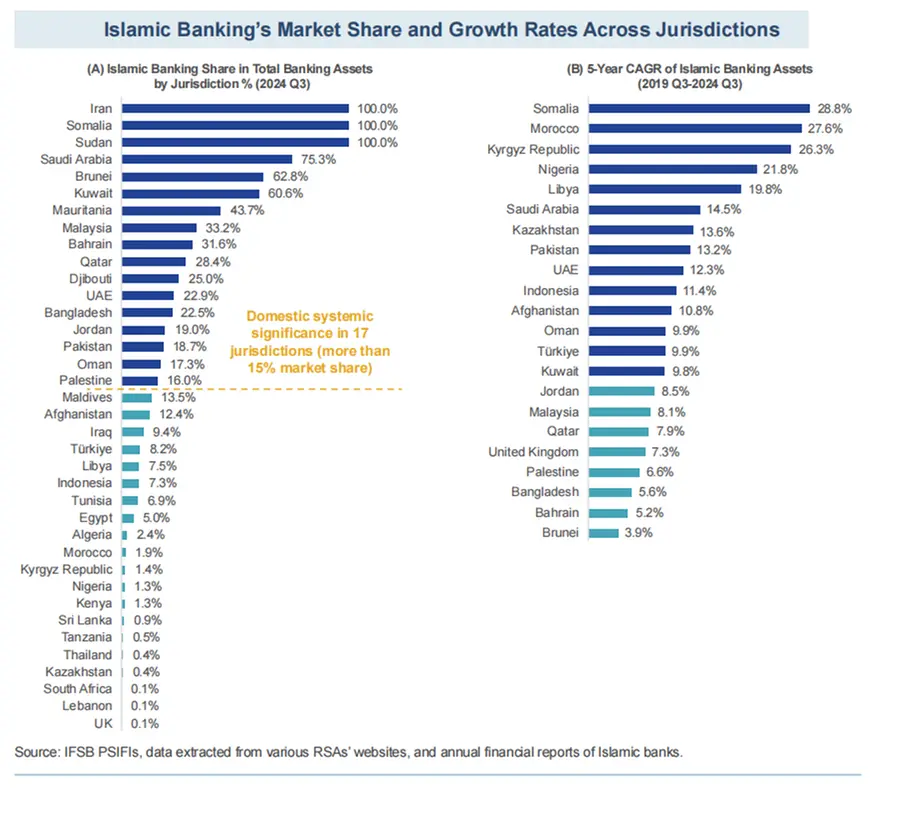

First published in 2010, the IFSI Stability Report has become a key reference for global stakeholders, regulators, and market participants. It offers in-depth insights into industry trends, vulnerabilities, and evolving policy priorities shaping the future of Islamic finance.
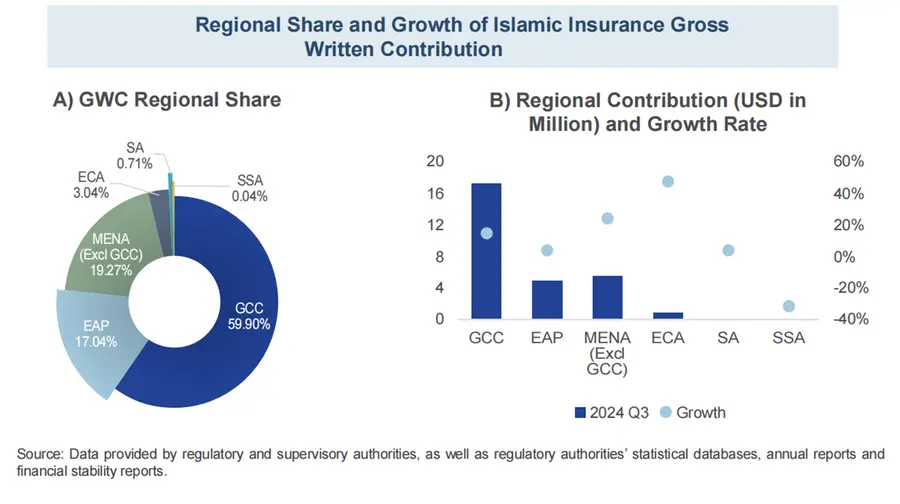

The IFSB Islamic Financial Services Industry Stability Report 2025 is now available at https://www.ifsb.org/wp-content/uploads/2025/05/IFSI-Stability-Report-May-2025.pdf.
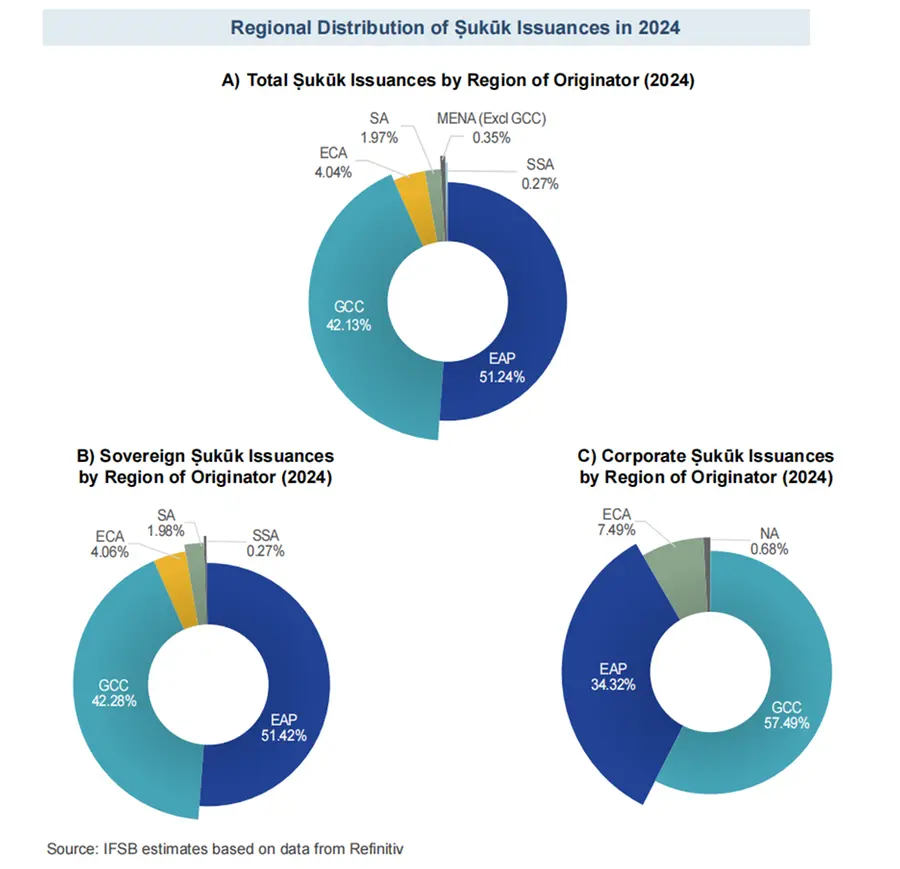

About the Islamic Financial Services Board (IFSB)
The IFSB is an international standard-setting organisation that promotes and enhances the soundness and stability of the Islamic financial services industry by issuing global prudential standards and guiding principles for the industry, broadly defined to include banking, capital markets and insurance sectors. The IFSB also conducts research and coordinates initiatives on industry-related issues, as well as organises roundtables, seminars and conferences for regulators and industry stakeholders. Towards this end, the IFSB works closely with relevant international, regional and national organisations, research/educational institutions and market players.
The members of the IFSB comprise regulatory and supervisory authorities, international inter-governmental organisations and market players, professional firms and industry associations. For more information about the IFSB, please visit www.ifsb.org.
IFSB Media Contact:
Nor Atiqah/ Ammar Khairi
Email: nor.atiqah@ifsb.org/ ifsb_sec@ifsb.org




















